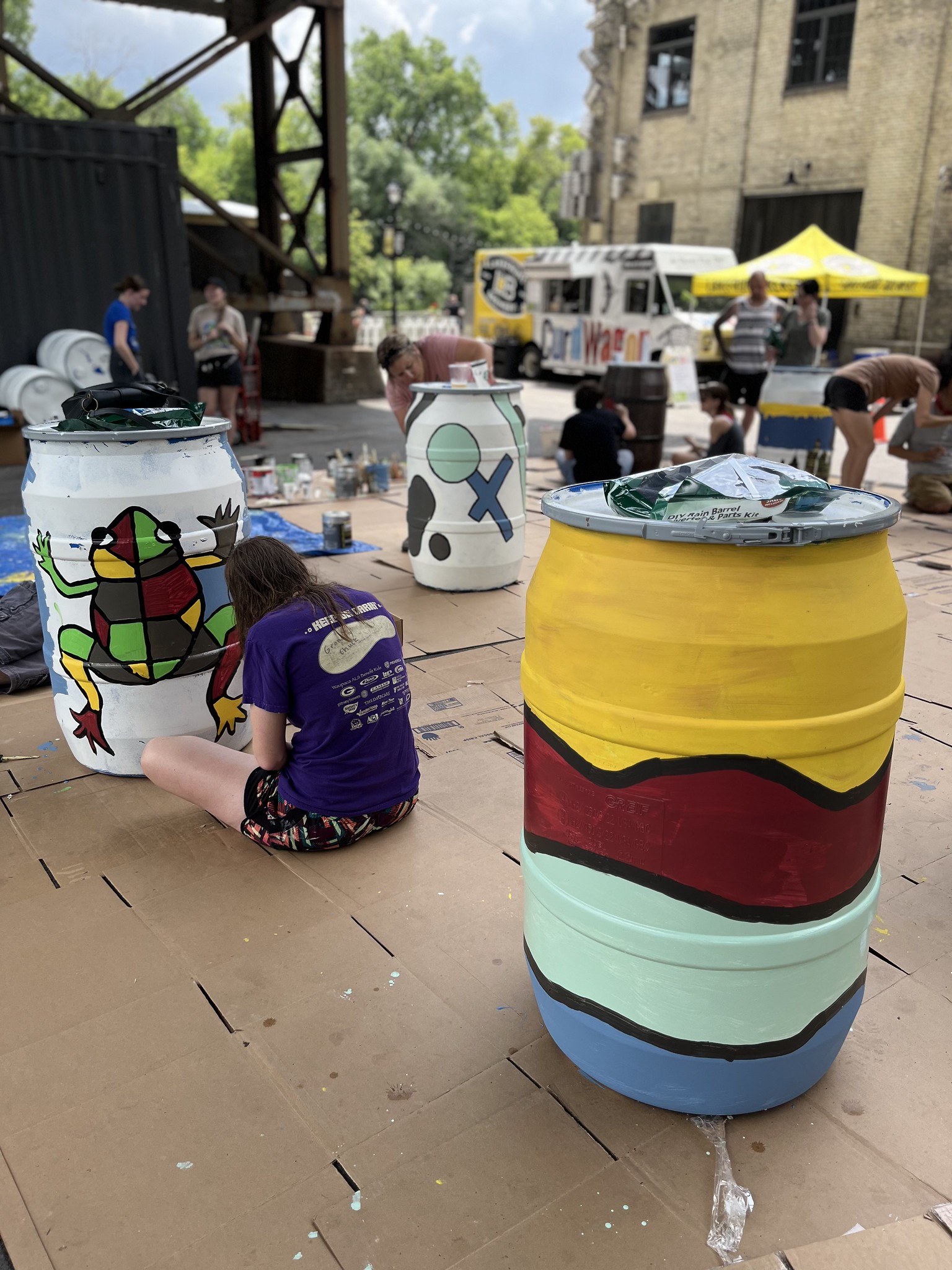Non-Point Source Pollution
Stormwater RunoffWhat is Nonpoint Source Pollution?
Nonpoint source pollution does not originate from one specific location and often releases and flows over a wide area of land. The difficulty with this type of pollution is that it is hard to identify the source and hold anyone responsible. Stormwater runoff is a type of nonpoint source pollution that involves rain and melting snow flowing off building rooftops, driveways, lawns, streets, parking lots, construction sites, and industrial storage yards. Runoff often carries harmful pollutants, such as salt, pesticides, fertilizers, oil, and grease to nearby waterways. Industrial facilities have a greater potential to pollute waterways through stormwater runoff. Some of these facilities include construction sites, hazardous waste treatment, landfills, and scrapyards. To ensure the quality of our waterways is not being further damaged, industrial facilities must be regulated. Road salt is especially harmful to our waterways. To find out more about its effects and our monitoring, visit our page on road salt.
Why is Runoff Harmful For Us and Our Waters?
Stormwater runoff and its pollutants have several negative effects on human health, wildlife and aquatic life, and our water.
- Kills fish and wildlife that rely on water or impairs their health, growth, or ability to reproduce.
- Land animals and people can become sick or die from eating diseased fish and shellfish or ingesting polluted water.
- Pollutants that contain nutrients and organic materials decrease oxygen levels in bodies of water, which is extremely harmful for plants and animals in the water.
- Increased runoff causes erosion and damages the quality of the soil and natural landscape.
- Microorganisms, like bacteria and viruses, harm humans who swim in and drink the water.
- Decreased clarity of the water due to soil erosion.
What Has Been Done?
The Wisconsin DNR currently requires industrial facilities to have stormwater industrial general permits. These permits have many requirements for each facility, like visual inspections and chemical monitoring. Overall, these permits are essential to protecting the quality of our waters.
What Does Milwaukee Riverkeeper Support?
Milwaukee Riverkeeper supports these stormwater permits. We continue to advocate for improved coverage at unpermitted facilities and better monitoring at all facilities. We also want to work towards more discussion and communication by the WDNR of industrial stormwater permittees.
What Can You Do To Help?
- You can reduce the amount of stormwater runoff.
- Use rain barrels to collect rainwater.
- Plant rain gardens to capture more water and filter it into the ground. Visit this link for a comprehensive guide on building a rain garden.
- Properly maintain your lawn.
- Reducing impermeable surfaces, which are surfaces that do not absorb water such as concrete and asphalt.
- You can reduce pollutants that may find their way into our waters. More information on different pollutants and how our water is doing can be found in our 2021 Milwaukee River Basin Report Card.
- Clean up your dog’s waste. Animal waste contains nutrients that cause the overproduction of algae, which depletes the oxygen levels in the water. It also can contain pathogens that cause disease to humans and wildlife.
- Do not overuse road salt.*
- Properly dispose of lawn clippings, which also cause the overproduction of algae and deplete the oxygen in the water.

